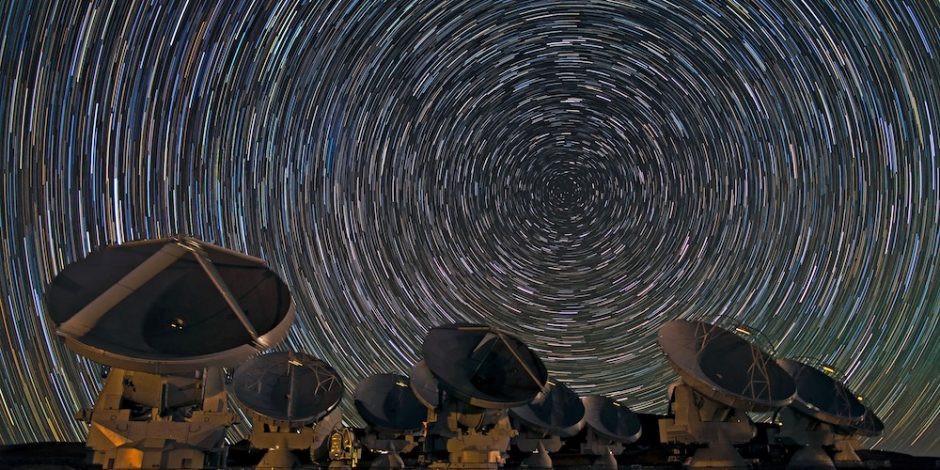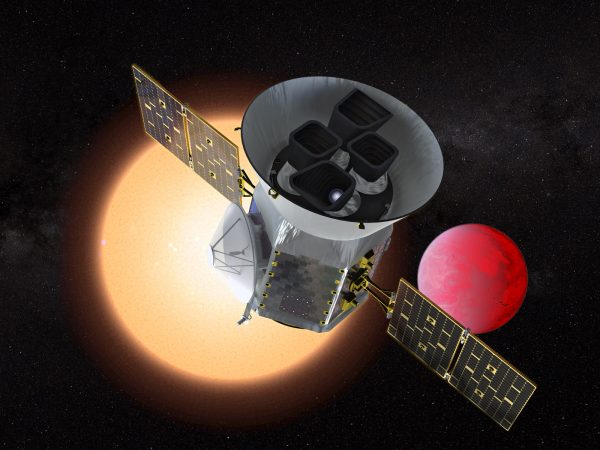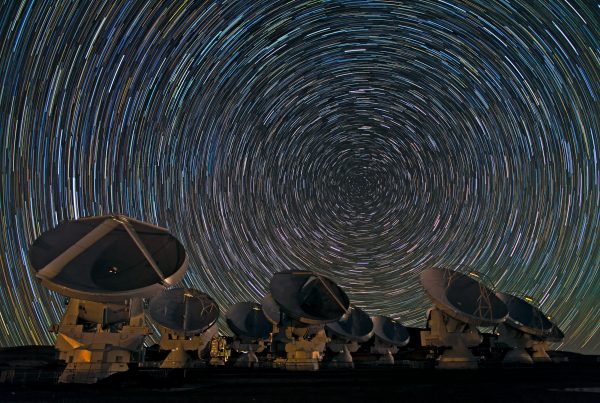Upcoming workshops

TESS workshop: Tuesday May 21st 2019 @ Geneva Observatory

Illustration of NASA’s Transiting Exoplanet Survey Satellite — TESS — in front of a lava planet orbiting its host star. (Image NASA’s Goddard Space Flight Center)
The Transiting Exoplanet Survey Satellite, TESS, is these days sweeping the sky searching for transiting exoplanets. The expected yield of more than 1000 planets transiting bright stars will affect every sub-field of exoplanetology; from statistical analysis of planet populations, internal structure models, planet formation theory to in-depth atmospheric characterisation. This workshop aims to bring together all PlanetS domains under the umbrella of the TESS mission, investigating how we can advance our science in the era of TESS.
As soon as we have the contributions/talks, we will prepare the schedule and send further information to you.
All NCCR members and associates are welcome to attend. For the definitive registration, please check your Doodle entry and edit/add if necessary. This link also includes lunch registration: https://doodle.com/poll/zi5ifuapfd3mkpy5
Deadline: 10.5.2019 @ noon
Talks
We now invite contributions in the form of a presentation or by suggesting a topic to be discussed. Please send an email to Louise.Nielsen@unige.ch and Xavier.Dumusque@unige.ch. Deadline: 3.5.2019 @ noon
Dust, Pebbles, and Minor Bodies Workshop: Thursday May 23 2019 @ University of Bern
https://dustpebblesandminorbodies.bitbucket.io

Star trails over ALMA, the most powerful telescope for observing the cool Universe — molecular gas and dust. (Photo ESO/B. Tafreshi)
With the concerted efforts of observers, theorists, and experimentalists, we now have a broad understanding of the sequential narrative of how planetary systems form and evolve in time: (i) giant molecular clouds gravitationally collapse to form protostars with accretion discs, (ii) tiny dust particles in the disc coagulate to form pebbles and eventually planetesimals through collisions and disc instabilities, (iii) planetary cores form and accrete gaseous envelopes, (iv) dispersal processes clear the gas in the disc and leave behind rocky debris discs, (v) planetesimals grow/fragment from collisional grinding while radiation pressure removes small grains from the system, and (vi) the remaining planets/debris slip into resonant orbits or are ejected from the system.
In each of these phases, dust, pebbles, and minor bodies (up to planetesimal sizes) play a crucial role in the formation and evolution of planets. However, given the difficulty of observing, reproducing, and/or modelling these objects in realistic environments, we still have large gaps in our understanding of how they behave and evolve within/between each of these phases. Bridging our knowledge in these areas involves exciting challenges, requiring innovations in instrumentation and laboratory techniques, more robust theoretical models, faster numerical algorithms, and simulations of increasing complexity to account for the relevant physical processes. Furthermore, with such interdisciplinary problems, we need a common vocabulary across sub-disciplines to identify complimentary strengths, overlapping interests between groups, and to foster collaboration. Therefore, the aim of this workshop is to paint a broad pedagogical overview of each discipline and to share exciting new research at the forefront of innovation where we hope to collectively push the boundaries of our knowledge.
We will be joined by a few visitors who work in related fields. Invited have been Leonardo Tesi, Michiel Lambrechts, and Thurid Mannel.
Date: Thursday, May 23 2019
Time: 08:30-19:00
Room: 033
Place: University of Bern, Hauptgebäude, Hochschulstrasse 4

